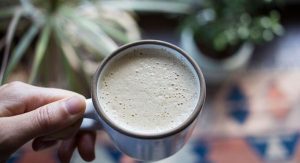Introduction – That Cup of Coffee You’ve Been Missing
You’ve had a tooth extraction, and now it’s day three. You’ve survived the soreness, the soft foods, and the constant rinsing. But there’s one question that keeps coming back — can I drink coffee 3 days after tooth extraction without risking your healing?
If you’re a coffee lover, you know that three days without your morning brew can feel like an eternity. But dental healing is delicate, and jumping back to your usual routine too soon can have consequences. In this guide, we’ll break down exactly what happens during those first few days after extraction, how coffee can affect recovery, and how to reintroduce it safely.
By the time you finish reading, you’ll know whether that cup is a “yes” or “not yet” — and how to make sure your first sip doesn’t set you back.
Understanding Tooth Extraction Healing: Why Timing Matters

Before we talk about coffee, it helps to understand what’s going on in your mouth during the first few days after an extraction.
When a tooth is removed, a blood clot forms in the socket. This clot is essential — it protects the exposed bone and nerves, acts as a scaffold for new tissue to grow, and prevents bacteria from entering the wound.
In the first 3–5 days, your body is:
- Forming and stabilizing the clot
- Starting the initial tissue repair
- Fighting off potential infection
Any disruption — heat, suction, strong swishing, or certain foods and drinks — can dislodge or dissolve this clot. This can lead to a painful condition called dry socket, where the bone and nerves are exposed, delaying healing and causing severe discomfort.
The Risks of Drinking Coffee Too Soon After Tooth Extraction

1. Heat and Blood Clot Breakdown
Hot liquids can soften or dissolve the clot prematurely. On day three, your clot is still vulnerable, so hot coffee could interfere with healing.
2. Increased Blood Flow and Bleeding
Caffeine is a mild stimulant and vasodilator, meaning it can slightly increase blood flow. In a healing wound, that can trigger more bleeding or re-open the site.
3. Acidity and Irritation
Coffee is naturally acidic. In a sensitive, healing area, acidity can irritate tissues and slow down the recovery process.
4. Suction and Straw Use
If you drink iced coffee with a straw, the suction can dislodge the clot, leading to dry socket.
Can You Drink Coffee 3 Days After Extraction? The Honest Answer
For most people, day three is still early, and hot coffee is not recommended unless your dentist specifically cleared you.
However, if your healing is going smoothly — no bleeding, swelling is down, pain is manageable — some dentists allow lukewarm or cool coffee starting around day three. The key is temperature and gentleness:
- Avoid hot coffee
- Sip slowly (no straws)
- Keep the coffee mild and not overly strong or acidic
If you still have swelling, throbbing pain, or signs of delayed healing, wait until day 5–7 for best safety.
How to Safely Reintroduce Coffee After Tooth Extraction
Step 1: Wait for the Right Signs
You’re probably ready for coffee when:
- There’s no active bleeding
- Pain is mild and mostly controlled without strong medication
- The extraction site feels stable when you eat soft foods
Step 2: Start with Lukewarm Coffee
Cool your coffee to just above room temperature. This protects the clot and prevents irritation.
Step 3: Skip the Straw
Always drink directly from the cup to avoid suction that could dislodge the clot.
Step 4: Limit Quantity and Strength
Start with half a cup, lighter brew, or add milk to reduce acidity.
Step 5: Rinse Gently Afterward
Wait about 20–30 minutes, then rinse with warm salt water to clean the site.
Real-Life Scenario: The Patient Who Rushed Coffee
Mark, a 29-year-old engineer, had a molar removed. By day three, he felt “okay” and went for his usual hot espresso. Within hours, he noticed throbbing pain that worsened overnight. He ended up with dry socket and needed an extra week of healing time.
Contrast that with Amy, a 42-year-old teacher, who waited until day five to have a lukewarm latte. She drank slowly, avoided suction, and had no issues — fully healing within two weeks.
The takeaway: a little patience can save you a lot of pain.
Common Mistakes to Avoid When Returning to Coffee
- Drinking coffee too hot
- Using a straw for iced coffee
- Chugging instead of sipping
- Drinking before bleeding stops
- Skipping gentle rinsing afterward
- Ignoring dentist’s specific aftercare instructions
Alternatives to Coffee While You Wait

If caffeine is the main reason you miss coffee, try:
- Decaf herbal teas (like chamomile or rooibos) — gentle and soothing
- Iced coffee alternatives made from chicory root or barley (lukewarm only)
- Matcha or green tea (mildly caffeinated, cooler temperature)
If it’s the morning ritual you miss, consider warm milk with cinnamon or caffeine-free lattes.
Industry Insights and Trends
Dentists have become more vocal about temperature control after dental surgery. In recent years, patient education has shifted from focusing only on “no straws” to also emphasizing heat avoidance. Many aftercare guides now suggest a lukewarm-only rule for the first 5–7 days, which may reduce the risk of dry socket by a significant margin.
FAQs – Coffee and Tooth Extraction Healing
1. Can I drink iced coffee on day three?
Only if it’s not too cold, there’s no straw, and your healing is going well. Sudden temperature extremes can also irritate the site.
2. Does caffeine really affect healing?
In moderate amounts, caffeine isn’t a major problem, but it can slightly increase bleeding risk in the early days.
3. Can I add milk or cream?
Yes, milk can help reduce acidity, but keep the drink lukewarm.
4. Is decaf coffee safer?
Decaf avoids the caffeine issue but still has acidity and temperature risks.
5. When is it completely safe to have hot coffee again?
Usually by day 7–10, but always follow your dentist’s guidance.
6. Can coffee cause infection after tooth extraction?
Not directly, but if it irritates the site or delays clot healing, infection risk goes up.
Final Thoughts – Your Coffee Will Wait for You
Three days after a tooth extraction, your healing is still in the early stages. While you might be able to enjoy a lukewarm cup if things are going smoothly, hot coffee is best left for later in the week.
Think of it this way — your first coffee after full healing will taste better than any rushed sip taken too soon. Give your mouth the time it needs, and you’ll get back to your favorite brew without setbacks.

